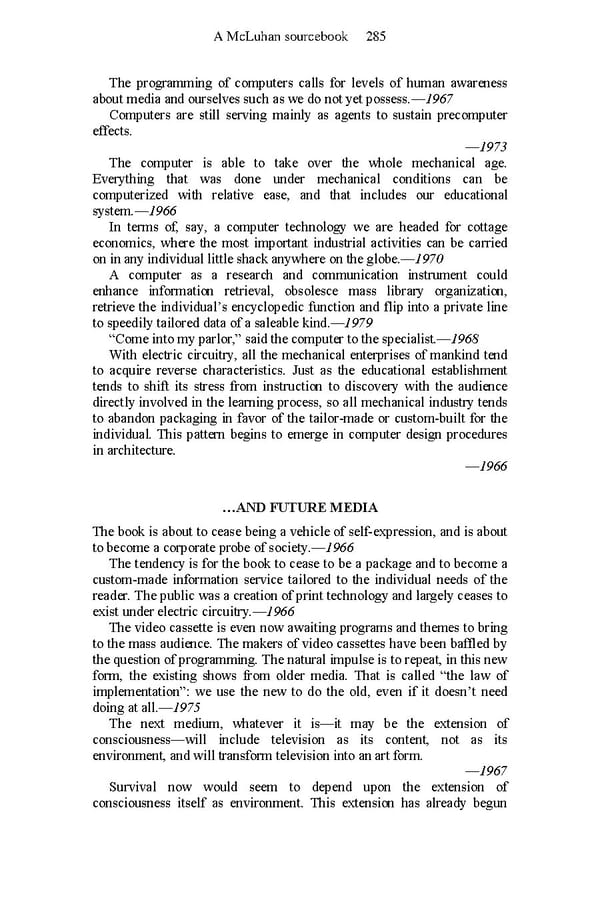A McLuhan sourcebook 285 The programming of computers calls for levels of human awareness about media and ourselves such as we do not yet possess.—1967 Computers are still serving mainly as agents to sustain precomputer effects. —1973 The computer is able to take over the whole mechanical age. Everything that was done under mechanical conditions can be computerized with relative ease, and that includes our educational system.—1966 In terms of, say, a computer technology we are headed for cottage economics, where the most important industrial activities can be carried on in any individual little shack anywhere on the globe.—1970 A computer as a research and communication instrument could enhance information retrieval, obsolesce mass library organization, retrieve the individual’s encyclopedic function and flip into a private line to speedily tailored data of a saleable kind.—1979 “Come into my parlor,” said the computer to the specialist.—1968 With electric circuitry, all the mechanical enterprises of mankind tend to acquire reverse characteristics. Just as the educational establishment tends to shift its stress from instruction to discovery with the audience directly involved in the learning process, so all mechanical industry tends to abandon packaging in favor of the tailor-made or custom-built for the individual. This pattern begins to emerge in computer design procedures in architecture. —1966 …AND FUTURE MEDIA The book is about to cease being a vehicle of self-expression, and is about to become a corporate probe of society.—1966 The tendency is for the book to cease to be a package and to become a custom-made information service tailored to the individual needs of the reader. The public was a creation of print technology and largely ceases to exist under electric circuitry.—1966 The video cassette is even now awaiting programs and themes to bring to the mass audience. The makers of video cassettes have been baffled by the question of programming. The natural impulse is to repeat, in this new form, the existing shows from older media. That is called “the law of implementation”: we use the new to do the old, even if it doesn’t need doing at all.—1975 The next medium, whatever it is—it may be the extension of consciousness—will include television as its content, not as its environment, and will transform television into an art form. —1967 Survival now would seem to depend upon the extension of consciousness itself as environment. This extension has already begun
 Essential McLuhan Page 291 Page 293
Essential McLuhan Page 291 Page 293